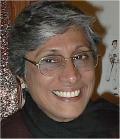|
|
| Global Perspective |
| May 17, 2005 | Vol. 3, No. 3 |

Virginia Saldanha is a woman activist working in India for the empowerment of women through Church institutions as well as networking with secular organizations in the struggle for justice and peace.
|
Becoming Peacemakers:
|
 Share NCR with your Friends |
The official was very interested to know how people in Asia live peacefully with all their differences. "We hardly ever think of our differences", I told him. "In fact we delight in experiencing and savoring the differences."
The recent debate in Europe about allowing Muslim girls to wear the hijab in schools is an unfortunate event marginalizing Muslims in Europe. One finds it incredulous that an item of girls clothing could be a threat to peace in school and society. In fact, the situation could have been turned into an opportunity to teach young people to grow up comfortably with differences, thus creating a healthier multi-religious and multi-cultural society for the future.
Catholics would do well to remind ourselves of what the fathers of the Second Vatican Council said in Nostra Aetate, the Declaration on the Relation of the Church to non-Christian Religions: "Over the centuries many quarrels and dissentions have arisen between Christians and Muslims." and "The sacred Council now pleads with all to forget the past, and urges that a sincere effort be made to achieve mutual understanding for the benefit of all [people], let them together preserve and promote peace, liberty, social justice and moral values."
I am painfully aware that the Islamic-phobia prevailing in the West has helped create the unhappy situation in which a ban on schoolgirls wearing the hijab can be justified. Will the ban help create a "secular" society for Europe? Or will it help to bred mutual fear and mistrust that can spark off violent acts between the Muslim minority and the Christian majority? Europe can learn from Asia.
India has declared itself to be a secular society. Our understanding of "secular" is not the denial of religion or the outward display of religious belief. "Secular" in India means that every person has the freedom to practice and propagate ones faith with complete freedom while respecting the fundamental rights of all other citizens.
In February, the Office of Education and Student Chapliancy of the Federation of Asian Bishops' Conferences organized in the Philippines a consultation on "Dialogue with Islam" to prepare awareness modules for students in schools and universities. Creating a greater understanding among the young people in Asia and particularly in the mainly Catholic Philippines is the need of our time. The resource persons at the consultation made us aware of how the attitudes of our Muslim brothers and sisters are being affected by the geopolitical events and religious currents around the world. With their backs to the wall, Muslims everywhere feel the need to be in solidarity with each other.
It is important to note that militancy and terrorism is not the monopoly of Muslims in the world. Furthermore only a small minority of Muslims from three major networks have been active in recent years for various political, economic and social reasons. These networks of militancy and terrorism have captured the attention of the media and therefore all Muslims unfortunately get the label "terrorist." This is unfair to the majority of Muslims who are moderate and peace loving people.
Our concern then is to keep the Muslim moderates from feeling threatened and pushed into the networks of the terror groups. This is possible only when we go back to the teachings and directives of Nostra Aetate and reject violent solutions to the problems of the world.
We have to reach out to our Muslim brothers and sisters with understanding and make them an integral part of the human community. We need to draw them into dialogue to work out solutions to the problems that threaten them, so that they do not see methods of violence as the only way out.
A powerful image that brings this problem into focus is the image of the Palestinian boys of the Intifada hurling stones at Israeli tanks. When the "enemy" controls all the centers of power, the only way open is that of violence. We have to become sensitive to their position and respond in the spirit of Christian concern and values of justice.
An important role for the churches in the present time is that of "peacemaker." Churches can offer to become mediators of peace and builders of human communities based on moral values and social justice. Can the church in Asia fulfill her prophetic role in these volatile times?
It is heartening to note that Pope Benedict XVI has stated at the very beginning of his pontificate, that he wishes to continue the dialogue with other religions and "build bridges of friendship." This is very necessary in the world today.
With deep humility he has requested our prayers to enable him to fulfill the demands of his great office. We earnestly pray that Pope Benedict XVI will steer the world away from intolerance, fear and simmering hatred towards genuine dialogue and friendship.
The Catholic church can be witness to the true peace, which Christ left to his church. There is no need to say we have the truth, we can show it only by witness.
| Copyright
© 2005 The National Catholic Reporter Publishing Company, 115
E. Armour Blvd., Kansas City, MO 64111
TEL: 1-816-531-0538 FAX: 1-816-968-2280 |